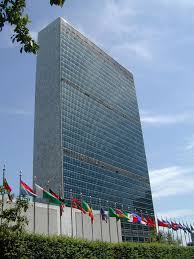The UN Human Rights Council concluded its 25th session at the end of last month. Many of the Council’s activities are not without controversy. Questions are commonplace regarding which countries do and do not get investigated. One of the Council’s roles is Universal Periodic Review (UPR), which allows for member states to review and evaluate the human rights records of all UN members. The Universal Rights Group, an independent think tank, recently released their report on the activities of the 25th session. I build on their discussion below, using what we know about those countries recently reviewed under UPR to answer broader concerns about fairness at the Council.
During this session, the Human Rights Council concluded discussions of the Universal Periodic Reviews for 15 countries: Belize, Central African Republic, Chad, China, Congo, Israel, Jordan, Malaysia, Malta, Mauritius, Mexico, Monaco, Nigeria, Senegal, and Saudi Arabia. Universal Rights Group read through all of these documents, tabulating the number of recommendations made and how the country responded to these recommendations.
The problem with thinking about issues of fairness is the need for comparisons. If we’re talking about how well UPR performs, we need a baseline. To address this problem, I used the rankings from Freedom House’s Freedom in the World 2014 report. What Freedom House does is classify each country as “Free” “Partly Free” or “Not Free” based a country’s ranking on 10 political rights indicators and 15 civil liberties indicators.
This produces the following groupings:
Free: Malta, Belize, Israel, Mauritius, Monaco, Senegal.
Partly Free: Mexico, Malaysia, Nigeria.
Not Free: Congo, Jordan, Chad, China, Central African Republic, Saudi Arabia.
One simple way to think about how well UPR is working is to look at its performance by these groups. This not only winnows down the data from 15 countries, but it also allows us to think about the baseline. Free countries should have better human rights records than those that are not, and should be less of a focus of UPR. Averaging the number of recommendations, the number accepted and the number rejected for each group reveals the following:
- UPR places more demands on less free countries. Contrary to the perception that dictatorships get off scot-free on the Council, the average number of recommendations made for not free countries (197) was higher than those for free countries (134).
- UPR recommendations seem to challenge less free countries. The average number of UPR recommendations that were explicitly rejected by governments was more than twice as high in not free countries (31) compared to free ones (14).
If UPR works as it should, we’d expect to see both of those findings, which is reassuring.
Another way to learn about UPR comes from studying the standard deviations across these three groups instead of the means. A standard deviation represents the ‘spread’ of individual country numbers about the mean, and this tells us whether countries in the same category have similar or disparate values. I calculated the standard deviations for the number of recommendations, the number accepted and the number rejected for each group. Two findings jump out here:
- High variation in recommendations made among free countries. Belize’s report only had 44 recommendations. Israel was on the opposite end, with 244 recommendations, which was the second highest level in the session.
- High variation in explicit rejections among partly free countries. Mexico did not reject a single recommendation. In contrast, Malaysia had the highest number of explicit rejections with 83.
The first of these is more troubling than the second, since it confirms the views that Israel is targeted more than other countries. At the same time, given that “partly free” is an intermediate category, high variation in this category is not surprising. It’s also a category comprised of three countries, so a high standard deviation here is also not surprising.
This isn’t the last word on the Council or on UPR, and we need to learn more from previous sessions to better assess its effectiveness. The Council is not without problems. But stating that UPR is ineffective raises the bigger question of how well human rights causes would be advanced without it.
